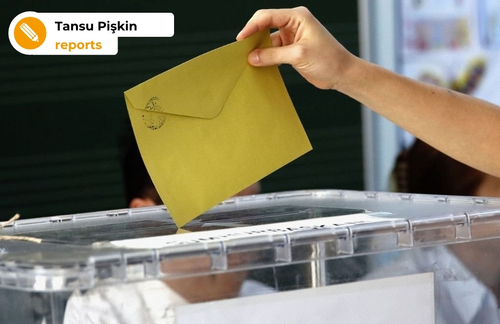Some provisions of the new election law passed by the parliament on March 31 will endanger election security, a constitutional law professor has warned.
The new law changes the rules on how provincial and district election electoral boards are formed. Under the long-standing old rule, the most senior judge in a constituency would be picked as the head of the electoral board of that particular district or province.
With the new law, the heads of election boards will be determined by lot. The Judicial Justice Commissions, which consist of the chief public prosecutor of a place and two judges picked by the Council of Judges and Prosecutors (HSK), will cast lots.
CLICK – ‘AKP and MHP change the election law according to their own needs’
CLICK – Will Turkey’s new election law save Erdoğan from losing majority in parliament?
“While there are a lot of problems with the HSK in terms of separation of powers, now these problems will be reflected in our electoral system,” said Prof. Korkut Kanadoğlu, the dean of the Okan University Faculty of Law.
The fact that the HSK is chaired by the minister of justice may be one of the factors exacerbating the problems in the system, he said.
“Moreover, as is the case with many amended articles, the justification of this amendment has no relation to the text of the article. While it is said, ‘the uncertainty regarding the selection of substitute members are eliminated’ in the justification of the article, the amendment is for the determination of not substitute members but chairpersons and members of [election] boards.
“This proposal, which is already problematic in terms of the law-making procedure, raises important doubts in terms of electoral security.”
“Option” to withdraw
There is an important difference between the determination of the members of provincial and district election boards, which is the option given to district judges to withdraw from lots, noted Kanadoğlu.
Why this option was not given to judges who do not want to be members of provincial election boards should be clarified, he said.
“The dangers of various types of pressure [on judges] that may arise during the exercise of the right not to take part in the drawing of lots should be taken into account in terms of election security, at least as a possibility, considering the experiences of previous years,” he added.
There were problems even with the old system and there were cases where election board chairs had resigned due to pressures, the professor recalled, saying, “It is a constitutional reality that our country is facing many problems in terms of election security.”
Details about the electoral law amendmentThe party has shared the following information about what has changed with the amendments introduced to the Election Law:
|
(TP/VK)
Source:Bianet
***Show us some LOVE by sharing it!***



